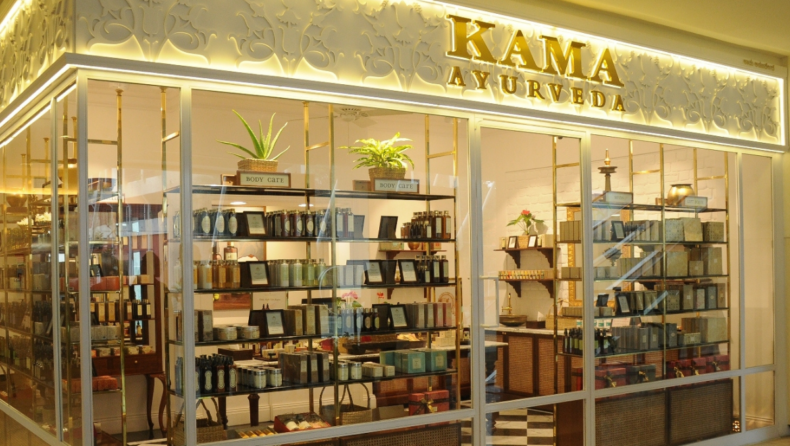Barcelona-based fragrance and fashion conglomerate has announced an increase in its stakes in the beauty wellness brand, Kama Ayurveda, by 36%.
Puig inaugurated their journey with Kama Ayurveda back in 2019 when they first showed interest in the Indian wellness brand by investing INR 100 crore to acquire a minority stake position in the company.
Then in August this year, they increased their stakes to 49% and now they are the majority stakeholders of the company with 85% ownership.
This increased stake sale has reportedly come from Kama Ayurveda’s investor Lighthouse Funds and their promoters’ shares. In 2017, Lighthouse Funds had invested in the company with 10 million USD but has now exited.
Puig’s CEO Marc Puig was quoted as saying, “India represents an incredibly exciting opportunity for Puig, and with this investment, we will continue our strategy of consolidating Kama Ayurveda’s strong domestic presence and of pursuing compelling opportunities in key markets abroad.”
Reports have shown that the Indian beauty and wellness brand has shown remarkable growth in its market worth from 14 billion USD in 2020 to 15.36 billion USD in 2021. (Euromonitor)
With over 50 operational stores all over the subcontinent, 2002 co-founded ayurvedic brand plans to increase that to a total of 60 stores by the end of this year. Apart from this, they also have 70 outlets of a shop-in-shop model with retailers like Shoppers Stop.
And by early 2024, backed by Puig’s support and expertise in brand building, they plan to launch their first international store in the UK market.
This acquisition is in congruence with Puig’s commitment to grow and diversify its portfolio and product offerings. Last year in May they acquired the Sweden luxury lifestyle and fragrance brand, Byredo, popularly known for its gender-neutral fragrances.
In July 2019, they brought under their umbrella Loto del Sur, a Colombian cosmetics brand, with a majority stake in the company. In 2020, they were also able to bag the British luxury makeup brand, Charlotte Tilbury for around 1 billion Euros.
And that’s not at all, last year in September they made the acquisition of the Chinese perfume brand, Scent Library.
Their portfolio also has other big industry brands like Carolina Herrera, Paco Rabanne, Nina Ricci, and Jean Paul Gaultier.
The brand also boasts of acquiring the fragrance licences for Christian Louboutin, Comme des Garçons, Adolfo Dominguez, Antonio Banderas, Shakira, and Benetton.
The conglomerate sells its products in more than 150 countries and reported sales of €2.58 billion in 2019. By 2021, they had increased their turnover by 27% and expect to reach €3 billion in the current financial year.
Co-founder of Kama Ayurveda, Vivek Sahni commented on the acquisition, “Together we will bring the experience of authentic Ayurvedic beauty and wellness to new audiences.”
Kama Ayurveda: Part of a Growing Global Market
Ayurveda is the age-old science of the subcontinent that uses organic formulations and healing rituals combined with the power of inner vitality or “ojas” in Sanskrit, which it advocates we all possess.
The Indian Ayurvedic market was worth 515.5 billion INR in 2021 and is expected to reach 1,536.9 billion INR by 2027 with a growth rate of 19.78%. (ResearchAndMarkets.com)
Globally the market was valued at 6.50 billion USD in 2020 and growing at a CAGR of 15.63%, is projected to reach 21.12 billion USD by 2028.
With the Ayurveda market growing rapidly, it’s of no surprise that international conglomerates are looking at investing in well-established Ayurvedic brands in the industry.
Forest EssentialsForest Essentials, a direct competitor of Kama Ayurveda was also acquired by the American beauty conglomerate, Estée Lauder Companies in 2008 with 20% stakes in the company.
Since its acquisition 12 years ago, the brand has expanded and been exposed to a lot bigger target audience. They have opened 90 stores across the subcontinent and also export to 100 countries through e-commerce in global markets like the US, the Gulf states, Australia, and Singapore.
What these Ayurvedic brands essentially do is satiate the growing thirst for “clean beauty” amongst consumers. This combined with the lure of a 5000-year-old Indian culture, the Ayurvedic beauty philosophy has been able to successfully attract many and continues to do so.













